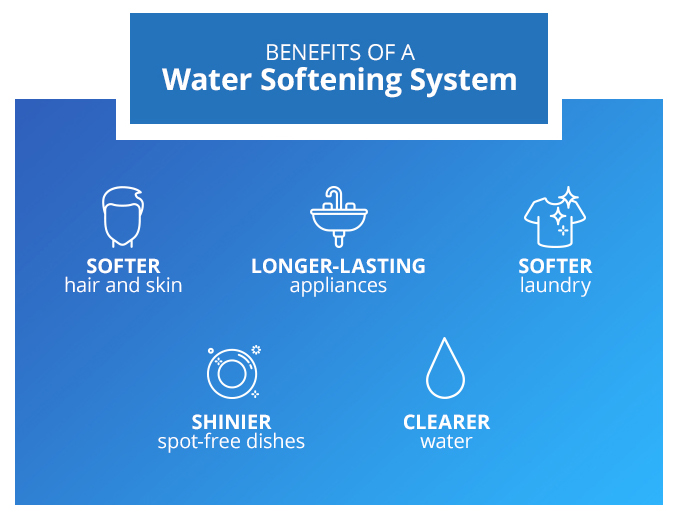Table of Contents
Water can sometimes trick us. It can look clear, taste fine and appear to have no problems, but sometimes we need to look closer.
Understanding the common elements found in groundwater tells us that water can be hard or soft. The presence of hard water in American homes is all too common, and it can negatively affect your skin and anything else you wash. To fix this problem, you may need a water softener. Read on to learn what a water softener does and if you may need one.
What Does a Water Softener Do?
Your water naturally consists of minerals that harden the water. The two typical hard water minerals are magnesium and calcium. They are called hard minerals because they cause a crust to form in pipes and around faucets. You must remove these two minerals to create soft water. That’s where water softeners come in.
In the same way that magnets have a positive and negative attraction, water softeners have negative resin beads charged with sodium chloride ions. As the hard water flows through the water softening system, the negative beads attract the positively charged magnesium and calcium particles. The freshly softened water then flows through your plumbing.
Is Soft Water Safe to Drink?
Soft water is safe to drink and benefits your body, clothes and dishes. In fact, soft water allows soap to lather on your skin so you get a deep clean. Hard water is abrasive on your body and can cause irritation that can lead to eczema. Dry skin can cause premature wrinkles, clogged pores and itchiness. You can decrease the harshness hard water has on your skin and hair with a water softener.
Does Softened Water Contain Salt?
With the removal of magnesium and calcium, many people question whether soft water is safe to drink. People ask this question because of salt. When the beads catch the magnesium and calcium in the water, an exchange occurs. The beads release sodium from the negatively charged ions. As a result, salt replaces the minerals in the water.
This reaction does not mean that soft water is salty. The amount of sodium in softened water is directly proportional to the amount of hardness that is being removed from the water. For example, if your water is tested to have 10 grains per gallon of hardness, one quart of softened water would contain 75 milligrams of sodium. Compare this to every day food and beverages and you will see that the amount of sodium is very minimul.
If you are concerned about sodium levels in your soft water, you can control sodium levels by incorporating a drinking water system into the home.
What Are the Benefits of Water Softeners?
Removing the magnesium and calcium from your water leads to several benefits. These include:
- Crust reduction: Without magnesium and calcium, the water running through your pipes won’t cause crust development on faucets and showerheads.
- Soft laundry: While placing fresh clothes into a basket, you’ll notice that your apparel is softer than before.
- Money savings: Soft water prevents buildup in the pipes, sinks and baths. That means you can save money and time on products that remove soap scum and crust.
- Clean feeling: Soft water encourages a natural clean during your shower or bath. It’s gentle on your body. Without hard minerals, your skin experiences less irritation, and your hair becomes softer.

How to Know If You Need a Water Softener
Soft water can solve several issues you may have in your home. However, the people who may need a water softener might not know what to look for. You can tell if your home could use this system based on a few observations. Here are a few reasons you may need a water softener:
- Limescale deposits: You may notice a buildup of “scales” on your shower head, teapot or dishwasher. Hard water shows up in this way, often in multiple areas of the house.
- Dry skin or hair: If your hair is frizzy or your skin feels “squeaky,” hard water may be stripping necessary moisture from your body.
- Soap buildup in the tub: If you see or feel residue covering your bathtub, that may be because the soap never dissolved in your water. Soft water creates a lather that washes away, whereas hard water keeps soap residue on surfaces.
- Higher water bills: Hard water can. make your pipes need to work harder, which can run up your utility bills. In the worst cases, this can damage the pipes over time, and you may need to find a replacement
Most homes with groundwater have hard water, according to a National Sanitation Foundation (NSF) water treatment expert. If you are unsure if this applies to your house, the best thing to do is call a professional technician like Culligan Water to perform a test.
Culligan Water Has Water Softeners for Your Home
We at Culligan Water specialize in individualized water treatment solutions for your home. Hard water can create a host of issues, but our combined 80 years of experience in the field can find the solution for you. To learn more about our High Efficiency water softener, call us at 717-746-0379 or make an appointment today!
